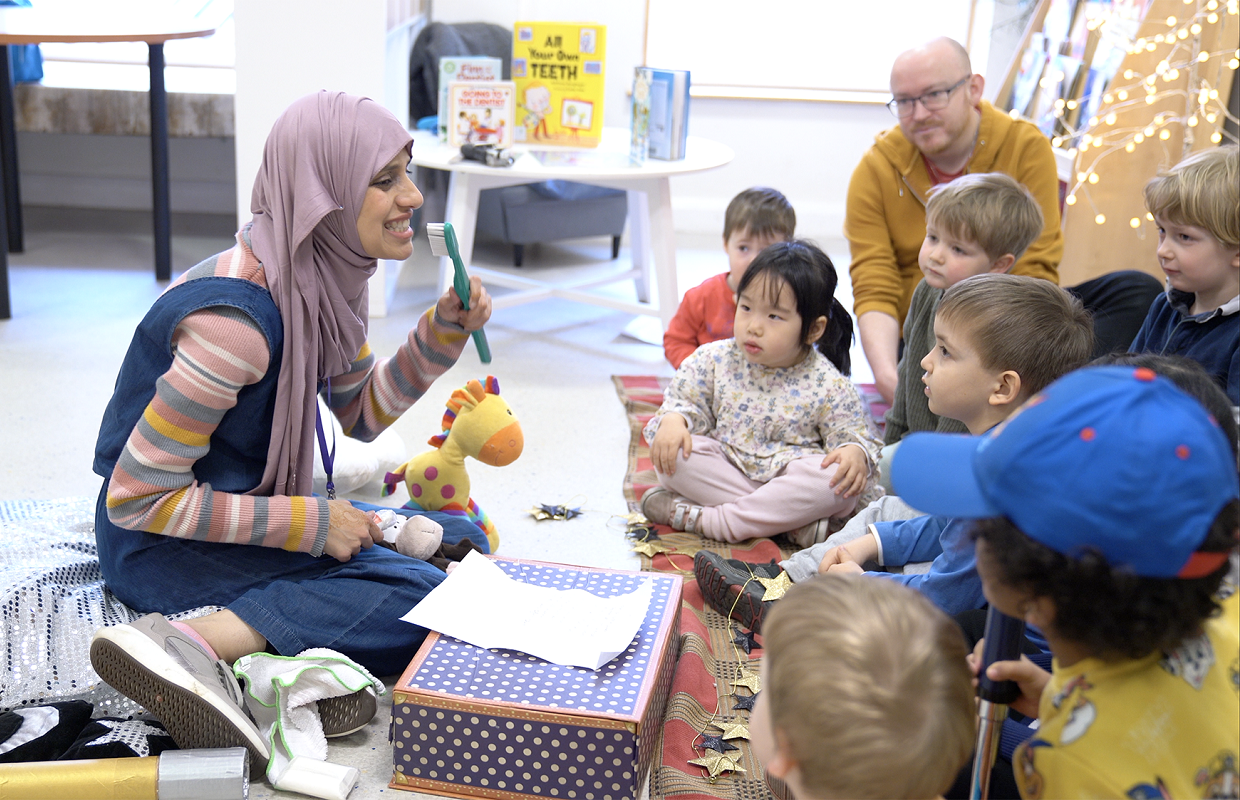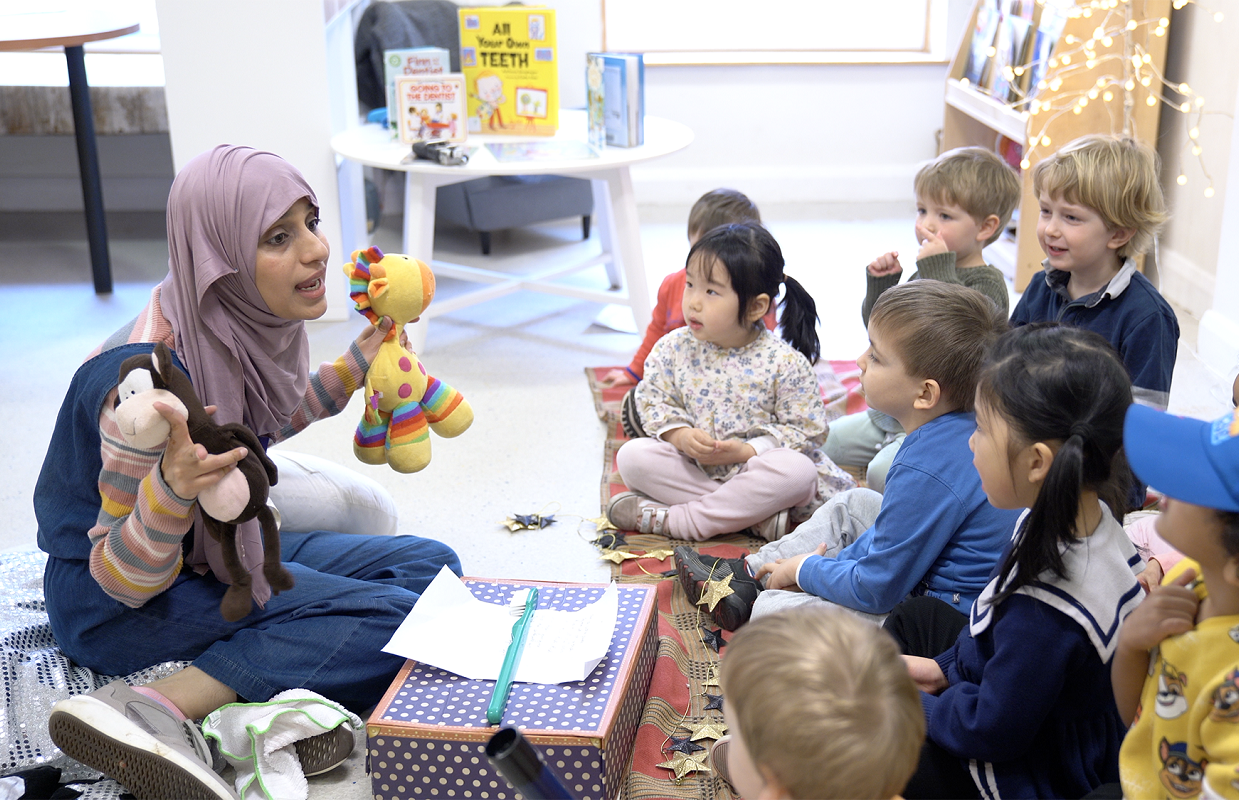Research shows that 25% of five-year-olds in England have tooth decay, a figure which can double in deprived areas. A new research project, part of the National Institute of Health and Social Care Research (NIHR) National Priorities Programme to improve Child and Health Maternity in the UK, is hoping to reduce these figures with the delivery of a supervised toothbrushing programme across England.
The BRUSH (optimising toothBrushing pRogrammes in nUrseries and ScHools) project is a collaborative project we are leading, together with NIHR Applied Research Collaboration (ARC) Yorkshire & Humber, and in collaboration with NIHR ARCs West and North East & North Cumbria. The research team plan to work with a range of stakeholders to learn how best to implement toothbrushing programmes in nurseries and primary schools across England, increasing uptake and success.
Tooth decay can cause pain and suffering and affect children’s speech, eating habits, quality of life, self-esteem and social confidence. It can also have a wider impact, on school readiness and attendance. In England, treatment of decay is the most common reason why young children (over 33,000 per annum) are admitted to hospital, costing the NHS over £30 million every year.

Although tooth decay is preventable by toothbrushing with a fluoride toothpaste, toothbrushing behaviours at home can vary. To help address this, the government has recommended nursery and school-based toothbrushing programmes. These have been found to be both cost-effective and effective in reducing tooth decay, especially in children at greatest risk. However, uptake and maintenance of these programmes can be fragmented with variations in funding and delivery.
Researchers will explore the best ways to implement the programmes and are exploring a range of creative methods to engage with children and young people. After building links with a local nursery the team have been working with a poet and storyteller to create a fun, interactive storytelling session using songs, characters, props and actions to encourage lively discussion.
Dr Kara Gray-Burrows, the co-principal investigator at the University of Leeds said: “This is a fantastic opportunity, not only to try out new methods in the field of dentistry with children and learn from children what they want, but also to give back to the community. We hope the children have a fantastic experience. We’re very excited about our interactive storytelling session!”

Other PPI activities are set to include community workers, parents, and educators from mainstream and special schools and workshops with schools and parents. At one recent workshop, parents shared their experiences and thoughts around children’s oral health and toothbrushing programmes, provided feedback on study materials, and helped to pick a logo for the project.
The team have launched a survey to local authorities across England to look at the current provision of toothbrushing programmes and are readying themselves for the next stage of the project, which will involve undertaking interviews with commissioners, health training providers, schools and nurseries, parents, and children.
The research team are a multidisciplinary team representing dentistry, public health, psychology, and the arts, based across the University of Leeds, University of Sheffield, and the Bradford Institute of Health Research and are supported by a project oversight group and national advisory board. The advisory board includes representatives from NHS England, the Office for Health Improvement and Disparities, the Department for Education the British Society of Paediatric Dentistry, the British Dental Association (BDA), the Local Government Association and the Institute of Health Visiting.
